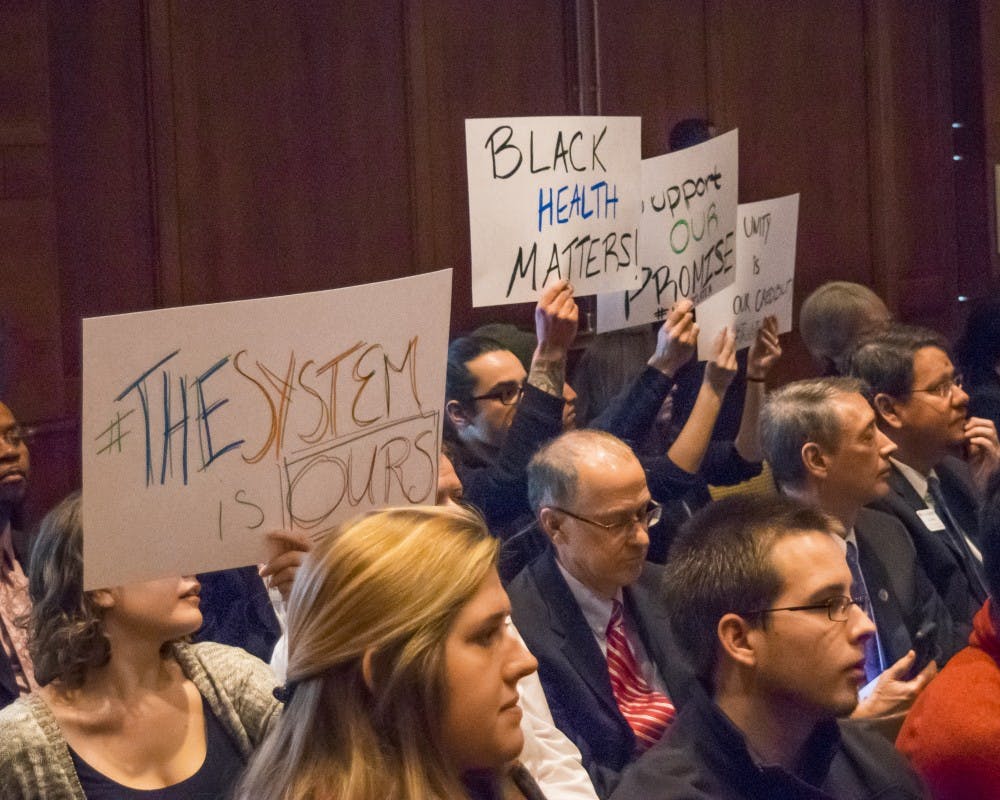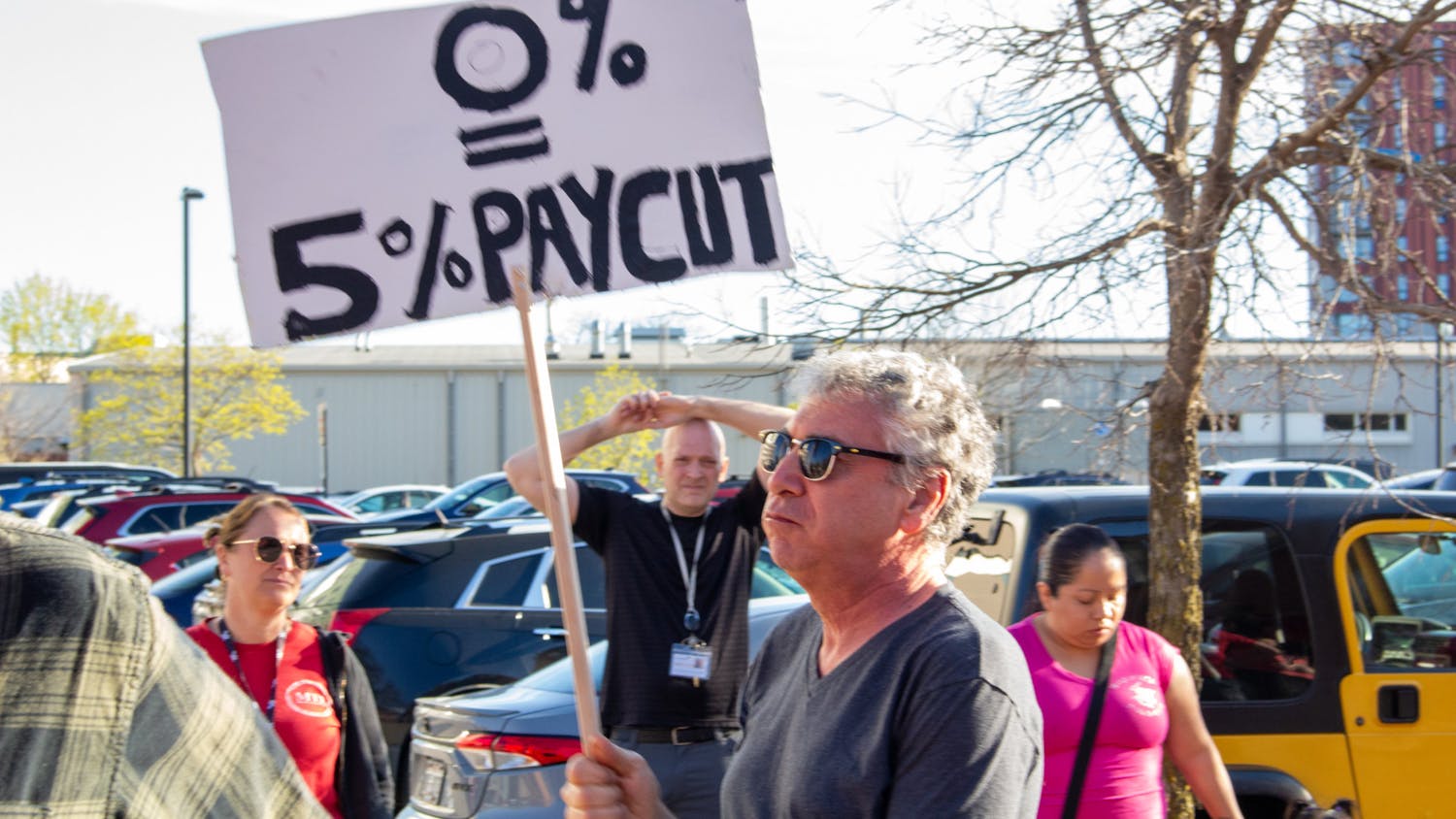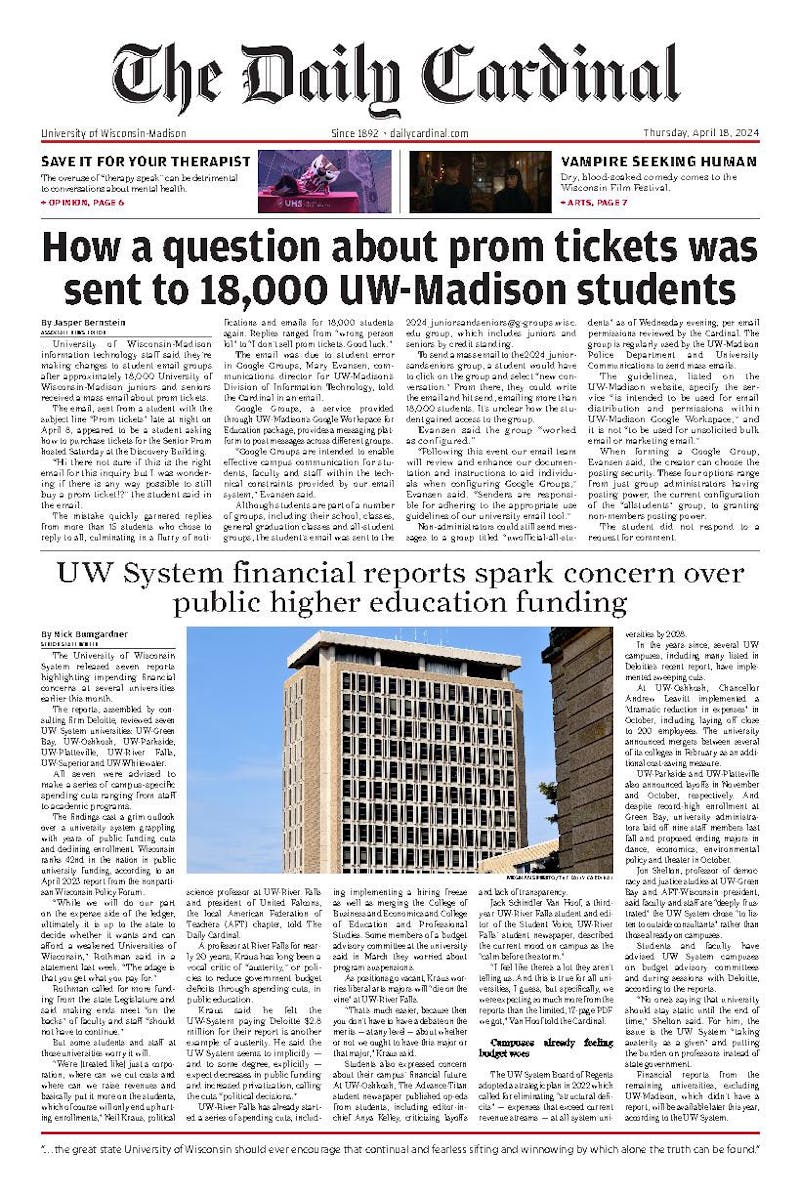The transition from high school to college can bombard a student with many sudden changes, but while most students are shocked by the size of the lecture hall, Kenneth Cole was shocked by the lack of people of color in it.
He would look around a class of more than 100 students and see one, or maybe two, black students in the room.
Cole, a current UW-Madison senior, grew up in a low-income Los Angeles neighborhood. He attends UW as a Posse Scholar, a four-year, full-tuition scholarship program based on multicultural leadership.
Cole said he experienced a culture shock upon his arrival, and the university’s lack of diversity and cultural literacy has strongly influenced his experience at UW.
“There is an overall lack of competency on how to interact with people and how to interact with other cultures,” said Cole.
Throughout his first semester on campus, Cole stated he was regularly stereotyped.
A student asked Cole at Camp Randall why he was not playing in the football game, and in another instance he was questioned if he was affiliated with a gang because of his clothing.
Another Posse Scholar, UW-Madison sophomore Tyriek Mack, said his experience at UW has been similar.
“Once you get here you start feeling inferior because how people look at you, because how people talk to you, how people treat you,” Mack said.
During Halloween of 2015, Mack said he talked a white student wearing a sombrero about how detrimental cultural appropriation can be to minority students.
The conversation ended with the student yelling a racial slur at Mack.
“It really makes us feel like college isn’t really a space where we’re wanted in a sense,” said Mack.
He believes racial disparities result in isolation, pushing minorities to create their own community and further perpetuating tension surrounding race on campus.
The daily, nuanced forms of racism that both UW-Madison students said they experienced coincided with a national conversation regarding diversity at historically white institutions.
Cole said the Chicago Black Tribune’s call for national solidarity sparked a movement on UW-Madison’s campus. Roughly 1,000 members of the UW-Madison community marched Nov. 12 to show solidarity for students at the University of Missouri, who were protesting against hate crimes and the response of university administrators.
The event was the beginning of UW-Madison’s BlackOut, led by Mack and Cole.
BlackOut has protested two Board of Regents meetings and has met with UW System President Ray Cross in an attempt to “actively engage with stakeholders that create programs and invest resources so that students of color and white students can better handle race on this campus,” Mack said.
According to Cole, the initial meeting seemed productive but has since been marred by miscommunication and a lack of concrete efforts to respond to the group’s demands.
“I want to believe that President Ray Cross is looking for change for underserved students on campus,” said Cole. “But in the back of my mind I still believe that many and most of the administrators who we are dealing with will continue to be oppressors in the fight for liberation of minority students and underserved perspectives on campus.”
The Board of Regents did not allow BlackOut, with members from other UW schools, to speak at either meeting.
“We go to Board of Regents meetings and they don’t want to listen to the perspective of multicultural students and they continue to talk over us,” Cole said. “They continue to go to recess and leave the room as we express concerns—serious concerns—about our friends and our fellow scholarship members and our fellow scholars having to leave campus because of mental issues, killing themselves because of mental health issues, because of being in Madison and the environment that is created and the lack of inclusivity and diversity.”
UW-Madison students of color have had to leave campus because of the lack of inclusivity and diversity, Cole said.
During the Feb. 5 Board of Regents meeting, BlackOut issued a sixth demand that focused on the application process to UW schools.
“Standardized testing is highly correlated with socioeconomic status,” Mack said.
Because of this, BlackOut has called for the removal of mandatory standardized testing to increase college accessibility for historically underrepresented groups. Both Cole and Mack believe this change to applications would greatly impact the social demographic on campus, in addition to serving the group’s other five demands.
The BlackOut movement, which has received national attention, has grown significantly since the first protest. According to Cole, BlackOut is meant to unite the student body, including both students of color and students in the majority.
“I believe that is it our moral obligation as students and as people to fight for the issues we believe in,” Cole said. “If we don’t take a stance, then we are just as bad as those who are taking the oppressive stance.”






